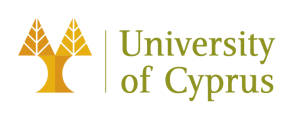
Approximate Greatest Common Divisor (GCD) and Linear Systems Properties
Nicos Karcanias
Professor of Control Theory & Design
Associate Dean for Research
Director of Systems and Control Research Centre
Department of Electrical and Electronic Engineering
School of Engineering and Mathematical Sciences
City University London, Northampton Square, London EC1V, 0HB, UK
Email: [email protected]
Abstract
General polynomial matrices, Matrix Pencils and the Greatest Common Divisor (GCD) of a set of polynomials are essential mathematical tools that underpin many of the structural properties of Linear Systems and the respective Control Theory problems [1], [2], [3]. The paper reviews their role and then deals with the role of the new notion of the “approximate GCD” [6], [7] and its implications on Linear Systems and Control Theory. We use exterior algebra and the Plucher embedding [4] to associate polynomial multivectors to different types of polynomial matrices and matrix pencils associated with system and problem descriptions [5], [8]. The notions of “approximate” and “optimal approximate” zero polynomials of a polynomial matrix is introduced by deploying recent results on the approximate GCD of a set of polynomials and the exterior algebra representation of polynomial matrices. The results provide a characterization of the notion of an “approximate matrix divisor” of a polynomial matrix and a new definition for the “approximate”, or “almost” zeros of polynomial matrices [5]. These provide the means for computing the distance from non-coprimeness of a polynomial matrix, as well as introduce a new framework for computing the distance of a system description from families of systems having certain properties, such as uncontrollability and unobservability. The computational framework is expressed as a distance problem in a projective space. The general framework defined for polynomial matrices provides a new characterization of approximate zeros and decoupling zeros of linear systems and a process leading to computation of their optimal versions. The use of restriction pencils provides the means for defining the distance of state feedback orbits from uncontrollable families of systems, as well as the invariant versions of the “approximate decoupling polynomials”. The overall framework that is introduced provides the means for introducing measures for the distance of a system from different families of uncontrollable systems, which may be feedback dependent, or feedback invariant, as well as the notion of “approximate decoupling polynomials”.
References
[1] Rosenbrock, HH (1970): “State Space and Multivariable Theory”, Nelson, London [2] Kailath, T (1980) “Linear Systems”. Prentice Hall, Englewood Cliffs, NJ. [3] Karcanias, N (2002). ‘Multivariable Poles and Zeros’. In Control Systems, Robotics and Automation, from Encyclopedia of Life Support Systems (EOLSS), UNESCO, Eolss Publishers, [http://www.eolss.net] UK [4] Marcus, M (1973): “Finite dimensional multilinear algebra (in two parts)”. Marcel Deker, New York. [5] Karcanias N and Giannakopoulos C “On Grassmann invariants and almost zeros of linear systems and the determinantal zero, pole assignment problem”, Int. J. Control Volume 40, 1984. [6] Karcanias N, Giannakopoulos C and Hubbard M: “Almost zeros of a set of polynomials of R[s]”. Int. J. Control Volume 38, Issue 6, June 1983, Pages 1213-1238 [7] Karcanias N, Fatouros S, Mitrouli M, Halikias G:”.Approximate greatest common divisor of many polynomials, generalised resultants, and strength of approximation. Comput & Maths with Applications, Volume 51, Issue 12, June 2006, Pages 1817-1830 [8] Karcanias N and Leventides, J (1996). “Grassman Invariants, Matrix Pencils and Linear System Properties”. Linear Algebra & Its Applic, Vol. 241-243, pp 705-731.Biography
Nicos Karcanias is Professor of Control Theory and Design, Associate Dean for Research in the School of Engineering and Mathematical Sciences of City University London, he is Director of the Systems and Control Centre of the School and Program Manager for the MSc Course in Systems and Control Engineering. He has established (1985) and leads the Systems and Control Research Centre of City University and has been managing the research of the School as Associate Dean for Research (since 2001), reorganized the research structure and related management processes of the School, led successfully the RAE submission of the School to General Engineering. His expertise are in the areas of Control Theory, General Systems Theory, Modelling of Complex Systems and Mathematical Methods. He is Fellow of IET (IEE), Fellow of IMA and Senior Member of IEEE. He is a member of EPSRC College since its establishment, member of many EU panels on research, Editor of IMA Journal of Mathematical Control and Information, Associate Editor for IEEE Conferences and IFAC World Congress. He has made contributions in the areas of Systems, Control Theory and Mathematical Methods, where novel approaches have been introduced. His research on the Control fundamentals has been accompanied by an effort to migrate Systems and Control to Complex problems, such as the development of a Control based methodology for Systems Integration, the development of fundamentals for a methodology for Systems Instrumentation, use of Control based techniques for understanding issues in Complex Systems and in particular understanding the notion of System of Systems. Integral part of his current research is the development of the general theory of Structure Evolving Systems in the effort to unify problems in Systems Integration and Life-Cycle problems in design. He is the author of over 250 papers published in Scientific Journals and Conference Proceedings and has supervised 27 completed PhD thesis in the areas of Linear Systems, Mathematical Systems Theory, Control Theory and Design, Algebraic Computations, Mathematical Methods for Control, Systems Theory of Measurement, Systems and Control to Complex Systems, Integrated Systems Design, and History of Systems and Control. His research has been supported by EPSRC and a number of EU projects. The migration of the traditional systems and control methodologies to complex engineering processes and their further development to address the related problems, has been the main driver for his research and this has been addressed in a number of EU and EPSRC projects, where he has participated and led a number of both basic and applied research activities.






